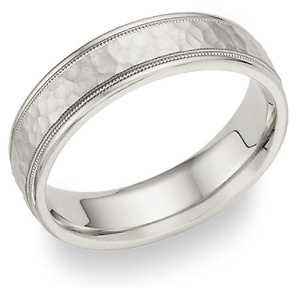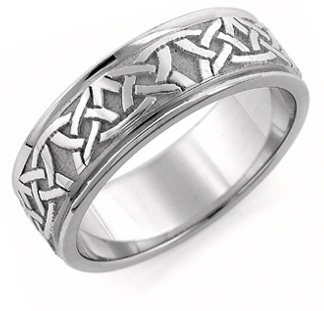Before you think about whether you’d prefer white gold or yellow gold wedding bands or consider whether you’d like your wedding rings to feature traditional or modern styles, you and the one you love need to consider if you’d like your wedding bands to match. If you’re still on the fence regarding the question of “to match or not to match?” consider these four factors.

If your tastes align—or at least intersect—matching rings may be a good option for you. On the other hand, if your tastes are very different, you may want to think twice. Or, opt for coordinating plain wedding bands, which can complement jewelry of any style.
Your lifestyles: Do you tend to give your jewelry a beating? What about the one you’re marrying? If you work with your hands or are prone to inflicting dents and dings on your rings, consider choosing wedding bands that can stand up to wear and tear; the same goes for the one you love. For instance, hammered wedding bands, such as the Hammered Milgrain Wedding Band in 14K White Gold, already have a pounded texture, providing instant camouflage for wear, while titanium styles resist scratching and denting in the first place.
If both of you are on board with rings that hide or resist dents and scratches, matching wedding bands could be for you. If not, it might be better to pick two different styles.

Your budget: While the amount you want to spend shouldn’t be the primary deciding factor in whether or not you opt for matching wedding bands, it can play a role. Why? A set of matching wedding rings often costs less than the rings that comprise it would cost if they were purchased separately.
If you do opt for matching wedding bands, don’t be afraid to think outside the box of plain wedding rings. A wide range of styles, from Celtic looks to braided designs to hammered wedding rings, are equally suited for both the bride and the groom.





